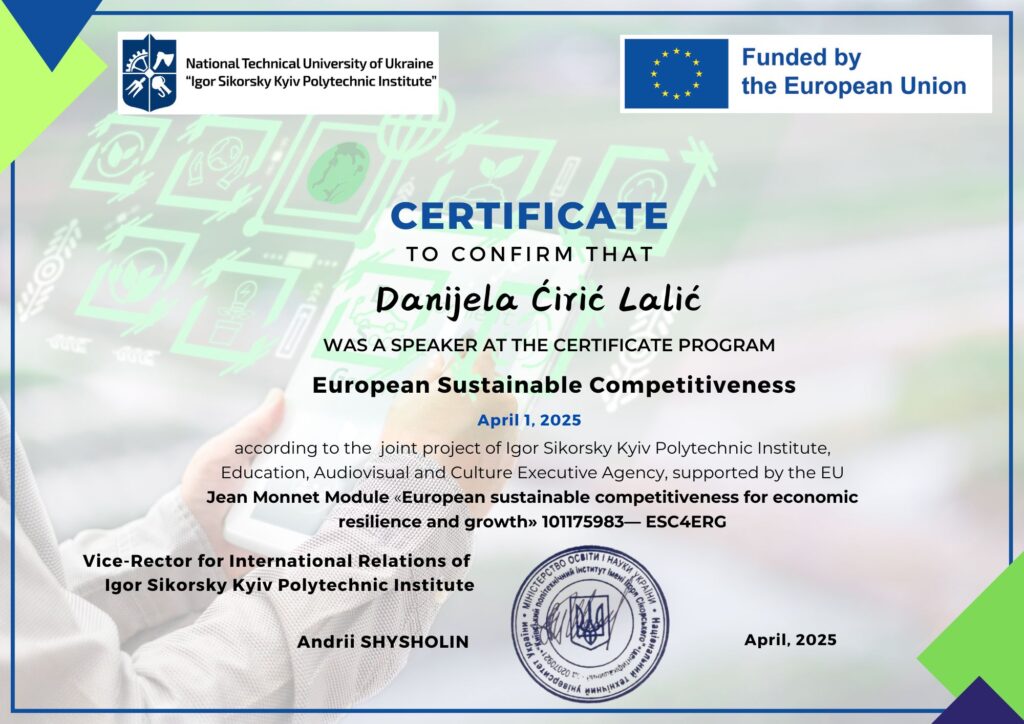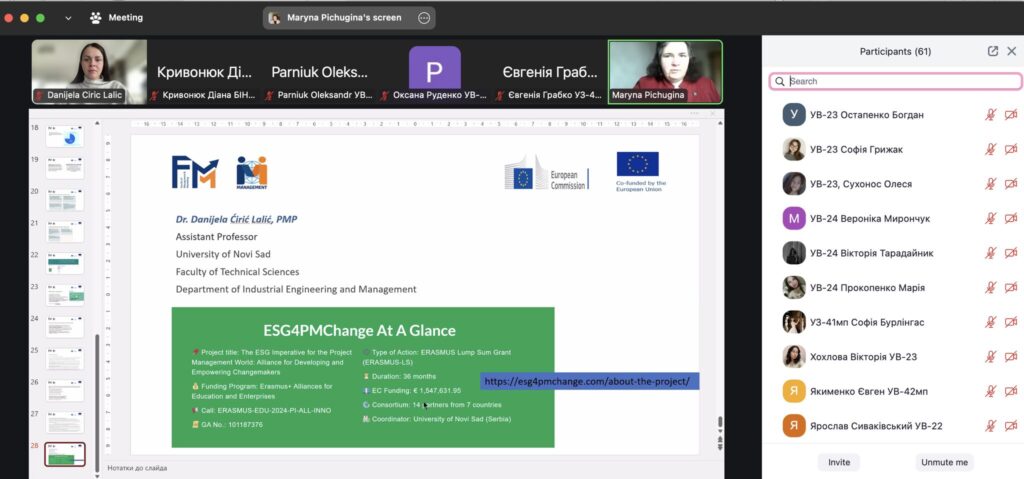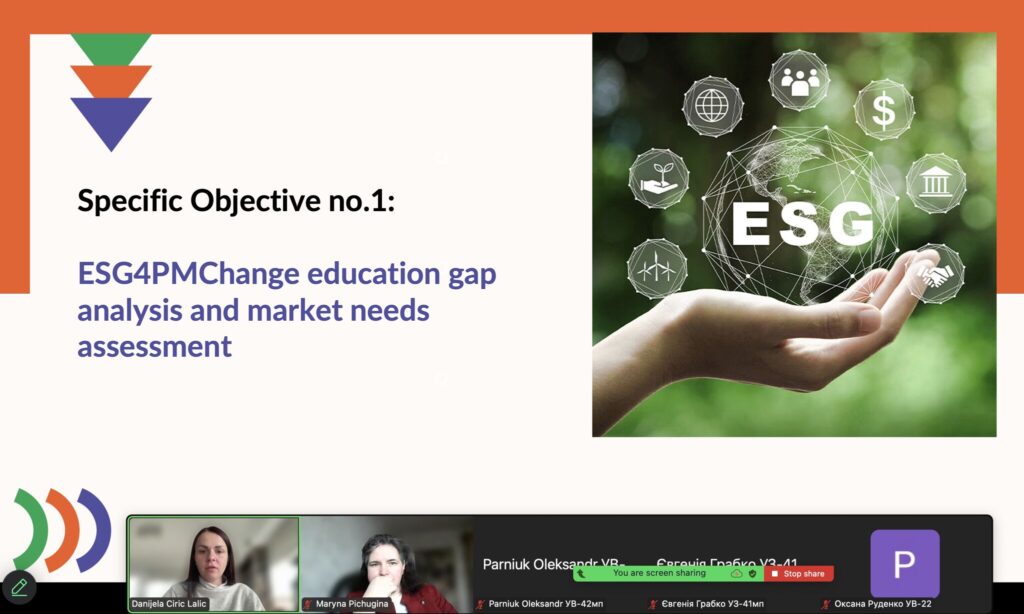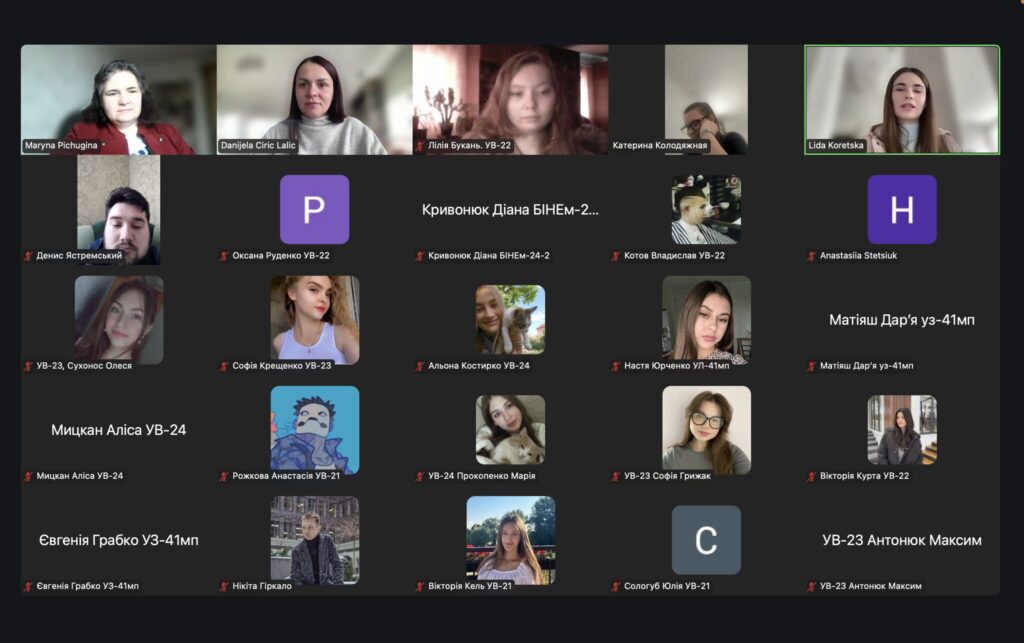As part of the Jean Monnet Module “European Sustainable Competitiveness for Economic Resilience and Growth” (ESC4ERG), a guest lecture was held at the Kyiv Polytechnic Institute, focusing on the integration of Environmental, Social, and Governance (ESG) principles within project management frameworks. The event attracted over 60 participants from across Europe, including students, academic staff, and sustainability professionals.
The session emphasized how ESG integration is becoming a cornerstone of the EU’s twin green and digital transitions, and how project managers will play a critical role in enabling this transformation. A central feature of the lecture was the presentation of the ESG4PMChange project as a practical example of structured capacity-building aligned with Erasmus+ and other international initiatives.
ESG4PMChange: A Practical Tool for Building Sustainable Competitiveness
Delivered by Dr. Danijela Ćirić Lalić (University of Novi Sad), the lecture introduced the ESG4PMChange competency framework, explaining how it supports the development of future-oriented project management skills. The presentation highlighted:
- Key goals and structure of ESG4PMChange;
- Real-life examples of how the project supports ESG competency development;
Synergies between ESG integration, digital upskilling, and sustainability education; - Connections to other Erasmus+ initiatives like GreenTech Horizons and SPM2.
The presentation showcased project management as a vital enabler of sustainable growth and employment competitiveness in a rapidly changing European landscape.
International Participation and Cross-Sectoral Exchange
Over 60 participants joined the session online, representing:
- Students enrolled in the ESC4ERG international certificate program;
- Faculty members and researchers from the Kyiv Polytechnic Institute;
- External experts in project management, EU competitiveness, and sustainability.




Their feedback was particularly positive regarding the applied nature of the ESG4PMChange framework and its potential to foster cross-institutional collaboration and strengthen educational programs focused on green and digital resilience. Participants also expressed strong interest in future ESG-based workshops, curriculum co-development, and continued networking through EU-supported platforms.

